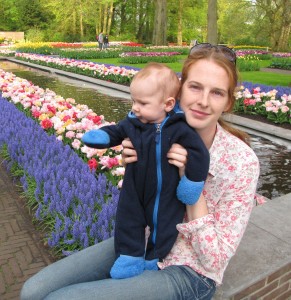
Even insured women in the U.S. have more medical bill worries and problems with healthcare than in other nations with universal healthcare.
According to a new Commonwealth Fund report, millions of American women still lack sufficient health insurance. In 2010 20 percent (18.7 million) of women aged 19-64 were uninsured. This number has increased from 15 percent in 2000. An additional 16.7 million women were underinsured in 2010, compared with 10.3 million in 2003.
The report suggests under the Affordable Care Act nearly all women will be covered by health insurance. Ultimately, the rate of uninsured women should drop from 20 percent to eight percent.
In the report, researchers examined the differences between how American women and women in ten countries with universal healthcare manage healthcare issues. They found double the number of insured women in the U.S. have problems paying medical bills than women in the other countries. One-fourth (26%) of American women have problems paying medical bills. This compares with 13 percent in Australia, 12 percent in France and four percent in Germany.

Liene tells us about the differences between her pregnancy and healthcare experiences in France and America
Moving abroad and having a baby can be two demanding experiences in themselves, so how about when the two coincide? We spoke to expat mum Liene, who has had a child on both sides of the Atlantic.
How did you find being pregnant and having a baby in France?
Pregnancy and childbirth in the USA and in France were two very different experiences, and I think if I were to have another child, I would prefer it to be in France, where the prenatal approach was more ‘hands-free’.

Expat mum Clare Taylor gives us her tips for keeping your family healthy abroad
When an expat family moves abroad for the first time, as ours did to Moscow 3 years ago, there are many things going through your mind. An issue that is often top of the list is leaving behind your children’s local healthcare providers.
Whilst we know we can’t cover every eventuality, it’s human nature to want to protect your family. This is even more pronounced in a new, and possibly hostile environment – especially if it’s somewhere you may not speak the language very well (if at all).

Children who are exposed to environmental smoke can have more respiratory problems in adulthood.
Children who are exposed to environmental tobacco smoke (ETS) are at risk of problems lasting well into adulthood. For more than three decades researchers have warned of the dangers of children being around ETS. Now a new study, conducted by the University of Arizona, has shown the effects of ETS last long past childhood, independent of whether the child become a smoker or not.
“This study shows that exposure to parental smoking increases the risk of persistence of respiratory symptoms from childhood into adulthood independent of personal smoking,” said Dr Juliana Pugmire, research specialist at the University of Arizona in Tucson.
 Moving abroad with children can be a difficult process for all involved. There are hundreds of things to consider from schools to housing. Here we talk to Carrie Lupoli, an American expat mum of two young daughters and founder of Live and Learn.
Moving abroad with children can be a difficult process for all involved. There are hundreds of things to consider from schools to housing. Here we talk to Carrie Lupoli, an American expat mum of two young daughters and founder of Live and Learn.
How did you find moving to Singapore with a newborn?
I imagine moving to Asia is a lot different than other places because it’s so easy to get domestic help in Asia. I moved with an experienced maid which made the transition much easier. I had to work out how to be an expat wife as well as an expat mother. I’d never lived abroad before, so I had to learn everything again.

Expat kids moving to a sunnier destination need to be educated on the risks of skin cancer.
Many expat families want to make the most of the weather when they move abroad. One reason why large numbers of British expats move to Spain, Australia and Thailand is to take advantage of the improved climate.
However, moving with children from the rainy climate of the UK to somewhere with a much higher sun exposure comes with added risks. According to the American Cancer Society, more than 3.5 million skin cancers are diagnosed each year. This is more than all other cancers combined. The primary cause is UV exposure. Much of the damage that will lead to future skin cancers occurs before age 18.

Living in an urban area could increase your child's chances of having a peanut or shellfish allergy.
Children who live in urban zones are more likely to suffer from food allergies than those in rural areas. The results of a study mapping allergies by geographic area have shown kids living in big cities are twice as likely to have allergies to seafood and nuts than those in rural areas.
The study, published in the July issue of Clinical Paediatrics, has shown population density plays a part in the likelihood of a child developing a food allergy. “This shows that environment has an impact on developing food allergies. Similar trends have been seen for related conditions like asthma. The big question is – what in the environment is triggering them? A better understanding of environmental factors will help us with prevention efforts,” said lead author Ruchi Gupta, M.D.

More couples are travelling abroad for fertility treatment due to egg shortages and cheaper costs.
Many women across Europe are being forced to travel abroad for fertility treatment. This is predominantly due to a lack of egg donors. Experts in Denmark have criticised the lack of compensation given to egg donors, resulting in a lack of eggs being donated.
This extreme shortage is forcing women to look abroad for fertility treatment, with Spain, Czech Republic and the USA being favourite destinations. On the other hand, Denmark’s liberal supply for sperm saw around 6,700 foreign women travel to the country for treatment in 2011. Sperm donation is still fully anonymous, unlike many other EU countries, meaning donations are given more freely.

Busy expat women may find health tests and regular screenings fall by the wayside.
The type and frequency of health screenings for a woman varies depending on her age. As expat women, raising a family and coping with living abroad can mean health tests take a backseat. So what type of screening is recommended for when?
A common misconception is that women’s health is limited to gynecology and obstetrics. This is far from the truth and many women themselves aren’t aware of what they should be screened for, when and how often. Preventative screenings are a way of picking up on a problem before symptoms show. If carried out correctly it can stop you from developing a potentially life-threatening disease. Read More →

A recent Time magazine cover has caused a storm about extended breastfeeding - attracting criticism and support.
Breastfeeding has featured heavily in the news lately with the controversial Time magazine cover of a woman breastfeeding her three year old son. The cover provoked various online reactions, some in support and others disgusted by the image. While the magazine’s publishers and breastfeeding organisations have backed it, others have reacted angrily.
The article was written to commemorate 20 years since the publication of The Baby Book by Dr. Bill Sears. The style of parenting featured in the article accompanying the picture is called “attachment parenting”. This method promotes extended breastfeeding, co-sleeping and “baby-wearing” – where the child is carried as close to your body as possible in a sling. Extreme it may sound to some, to others it is completely natural, yet is being targeted by society.